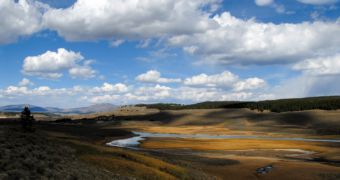The Environment Protection Agency is recently acting out again, seeking to modify the existing legislation, which currently prevents companies from building coal-powered plants, oil refineries, and other such heavy-polluting facilities near national parks. The EPA doesn't act like its name, but, rather, tries to follow the agenda of large corporations, who have been lobbying for modified rules for years.
Under the new legislation, the Agency will stop monitoring air quality near national parks every 3 hours. Currently, this practice allows for a very close monitoring of spikes in pollution, which discourage companies from polluting the environment, due to the risk of getting heavily fined. But now, EPA officials, with everything but the interest of the environment in mind, want to rule out these practices, and move for an annual emission average, which will basically mean that spikes in pollution will no longer break the law.
This would open a legislative loophole for polluters to increase their emissions. Instead of tightening regulations, as an environment protection agency should, the EPA is making it easier for corporations to exploit natural resources, mainly fossil fuels, near national parks, including Yellowstone and Virginia's Shenandoah.
The new plan "would reduce consistency, accuracy and public review" and "could allow greater deterioration of air quality in clean areas rather than preventing significant deterioration," said J. I. Palmer Jr., EPA Region 4 administrator.
Acting administrator for Region 5, Bharat Mathur, added "The proposed approach is inappropriate and could lead to gaming the increment calculation." Carol Rushin, Region 8 administrator, also said that the new measure will offer corporations "inappropriate discretion," in hiding pollution levels.
[Submissions] "are all part of the regular agency process, so all I can say is that that process has been moving forward. Work continues on a number of rules including the [Class 1 areas] rule, but no time line has been set for completion at this point," said EPA spokesman, Jonathan Shradar.

 14 DAY TRIAL //
14 DAY TRIAL //